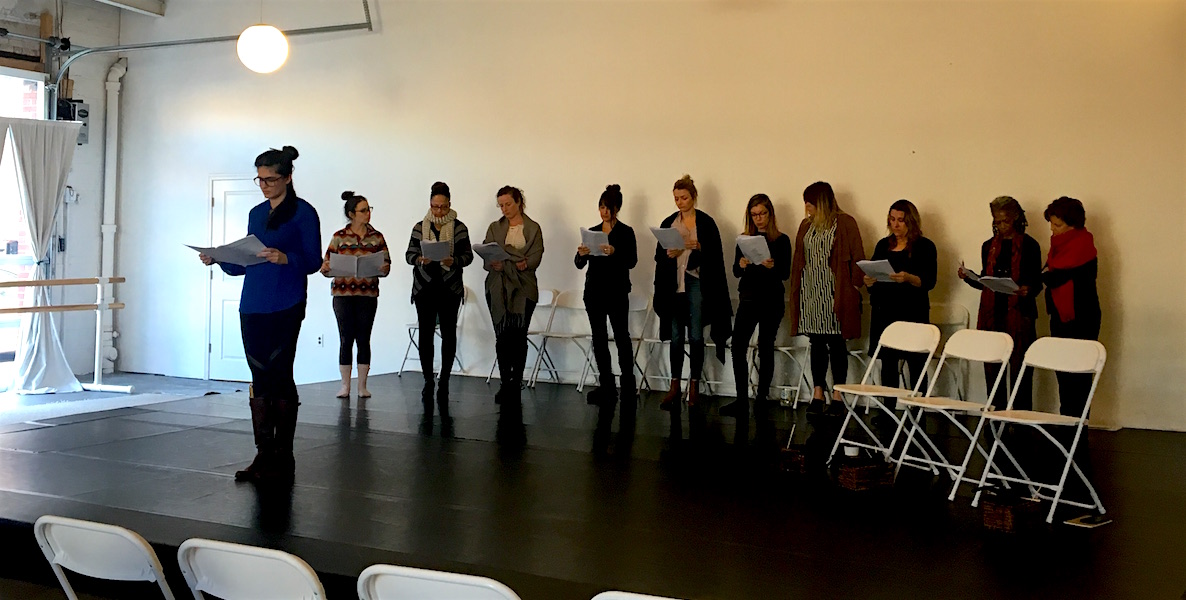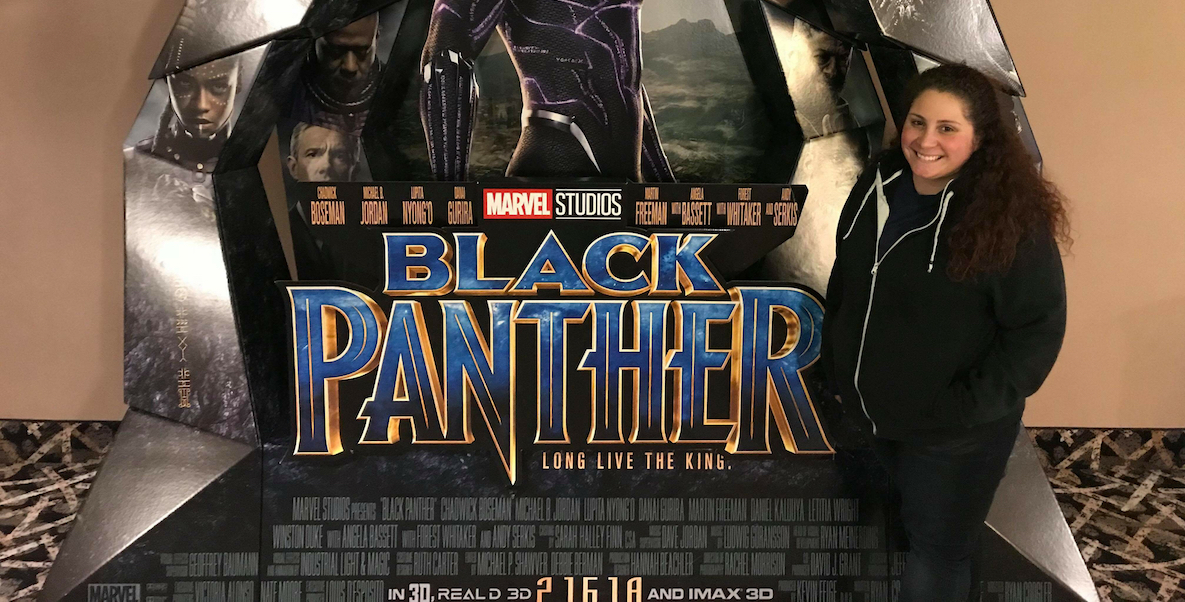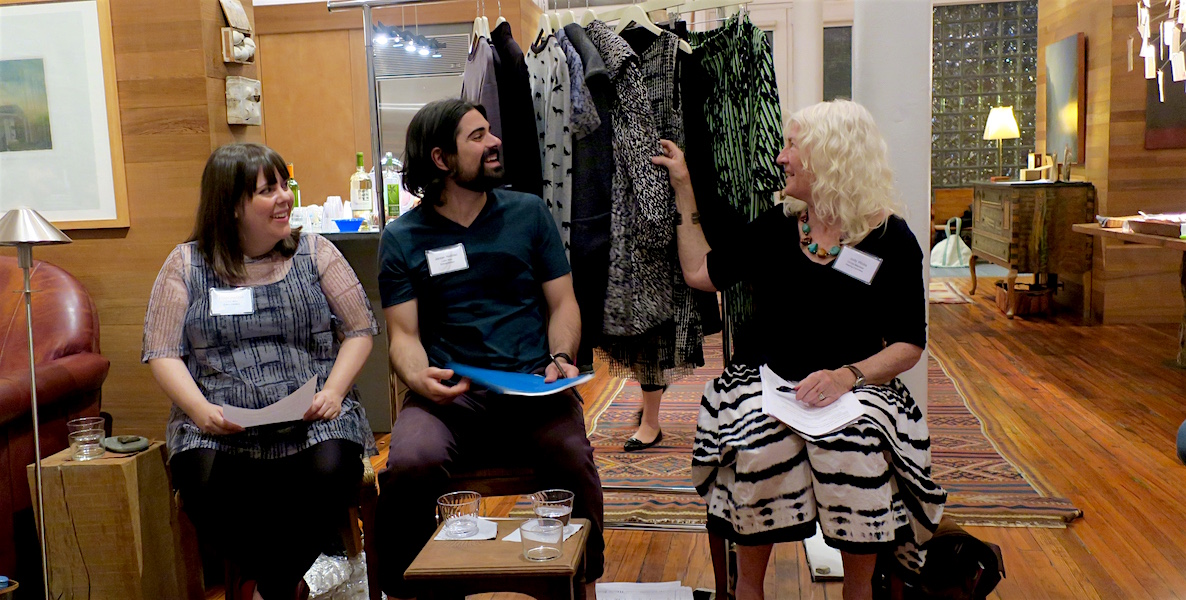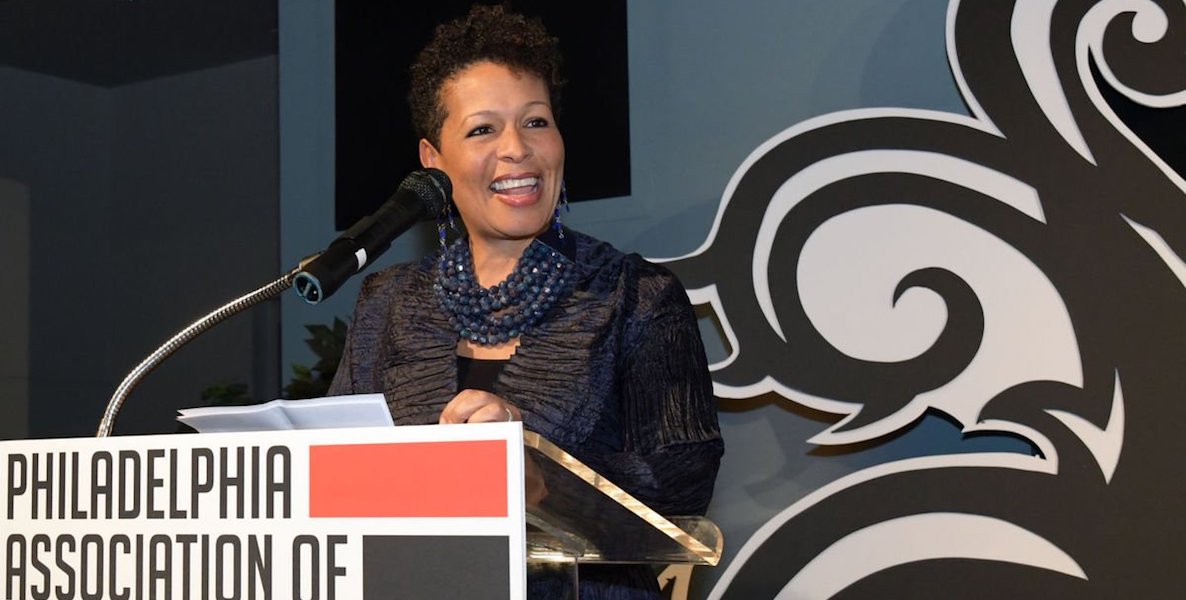W.E.B. DuBois once famously framed the duality of being Black and American as a “two-ness” or “double consciousness.”
“An American, a Negro,” he wrote, “two souls, two thoughts, two unreconciled strivings; two warring ideals in one dark body, whose dogged strength alone keeps it from being torn asunder.”
Building on Dr. DuBois’s brilliant analysis, as we march into Women’s History Month this March—especially during this #MeToo moment, I have been reflecting on what it is to be a Black American woman. It’s there where we discover a kind of “three-ness” or triple-consciousness, an existence that informs how we as Black women navigate this world and our lives.
While women are more than half the U.S. population, and people of color nearly 40 percent, women of color represent just 7.95 percent of U.S. print newsroom staff, 12.6 percent of local TV news staff, and 6.2 percent of local radio staff.
This question has really piqued my interest in the wake of a new report from the Women in Media Center entitled The Status of Women of Color in the U.S. News Media 2018. Released last week, the report found that while women are more than half the U.S. population, and people of color nearly 40 percent, women of color represent just 7.95 percent of U.S. print newsroom staff, 12.6 percent of local TV news staff, and 6.2 percent of local radio staff.
That number shrinks even further when you look specifically at African American women in the media.
As I studied the report, I began considering: What does my Black woman-ness mean in the context of leading the only Black-owned talk radio station in Pennsylvania and one of only three in the country?
To be honest, at times this “three-ness” has felt like a weight—having to navigate racism, sexism, implicit bias and all the limitations that come when you’re placed in these tiny little boxes, often ignored or underestimated and told to wait your turn.
Black women, however, have never been shy about using our voice, our pen, our bodies, and our minds to get things done. This March we celebrate Harriet Tubman, Sojourner Truth, Ida B. Wells, Ella Baker, Maya Angelou, Toni Morrison, Jesmyn Ward, Oprah Winfrey, Ava Duvernay— sheroes past and present who are leading in various ways, and steadily moving our people forward. We have always been underestimated and underrepresented—yet, we are undaunted by the tasks we confront.
While we have always shared many of the concerns championed by the mainstream women’s movement—reproductive rights, sexual harassment, equal pay and a host of others—we have never had the luxury of fighting a singular fight. Our lives have always existed at the intersection of race, class and gender.
Our foremothers paved this path with sweat, tears, love, patience, determination and an unfailing faith in the unseen, unheard, and unknown. I especially want to give honor to my mother, Beverly Lomax, who plowed seeds of excellence and confidence and power into me from my earliest days. She is a quiet, strong, grounded woman who is not afraid of silence or stillness. She is the original earth mother who raised six Black children in an almost all-white community during the 1970s. She and my father believed that Black is beautiful and instilled in us a sense of pride and love of self.
They modeled for me what it is to speak truth to power: sometimes quietly, sometimes with defiance. Sometimes through action—but always with integrity.
Which brings me back to WURD. This power through a combination of resilient word and action explains why we are so unique. It’s not just that we are a Black-woman led organization in a media world where there are so few Black women in positions of power. But we are part of a powerful legacy that extends far beyond our 15 years on the radio dial.
We are an independent Black-owned media company in an environment where national conglomerates dominate the marketplace. In fact, 90 percent of all mass media is owned by just six companies. We are a talk radio station that has original live and local programming from 6 am to 10 pm every weekday—at a time where most radio stations are populated with nationally syndicated shows and repetitive playlists. We are an actual business that employs and trains journalists, producers, marketers of color so they can learn and grow in this profession.
Black women have never been shy about using our voice, our pen, our bodies, and our minds to get things done. This March we celebrate Harriet Tubman, Sojourner Truth, Ida B. Wells, Ella Baker, Maya Angelou, Toni Morrison, Jesmyn Ward, Oprah Winfrey, Ava Duvernay— sheroes past and present who are leading in various ways, and steadily moving our people forward.
But most importantly, we provide our community a place where our full humanity is on full display every day. We offer our people a place where we can speak and be heard—every day. We create spaces on air, online, in social media and through community events where we can gather and share our individual and collective experiences.
All of this is absolutely essential given the world we have inherited in this moment. We are watching—in real time—as America retracts itself, tumbling back in time as it seeks to return to a pre-1968 version of itself.
![]() But this is in fact 2018, an auspicious year on many fronts: At WURD we are celebrating our 15th anniversary with a declaration that we move from WURD to Action. Dr. DuBois’s 150th birthday is being marked by The Year of DuBois, spearheaded by Dr. Tony Monteiro; it’s Frederick Douglass’s 200th birthday; the 50th anniversary of the assassination of Dr. Martin Luther King; and the 50th anniversary of the publication of the Kerner Commission report that detailed the devastating effects of centuries of racism and white supremacy on the Black community.
But this is in fact 2018, an auspicious year on many fronts: At WURD we are celebrating our 15th anniversary with a declaration that we move from WURD to Action. Dr. DuBois’s 150th birthday is being marked by The Year of DuBois, spearheaded by Dr. Tony Monteiro; it’s Frederick Douglass’s 200th birthday; the 50th anniversary of the assassination of Dr. Martin Luther King; and the 50th anniversary of the publication of the Kerner Commission report that detailed the devastating effects of centuries of racism and white supremacy on the Black community.
Deeply disturbing is the reality that 50 years later, Black people still suffer the brunt of systemic racism and inequality. When we look at data provided by the Kerner Commission report and compare it to today’s reality, it is shocking how far we haven’t come. In a must-read follow-up briefing by the Economic Policy Institute titled 50 years after the Kerner Commission, researchers Valerie Wilson, Janelle Jones (who appeared on WURD to discuss it) and John Schmitt observed that:
-
-
- The unemployment rate for African Americans in 2017 (the last full year of data) was 7.5 percent, 0.8 percentage points higher than it was in 1968 (6.7 percent). The unemployment rate for whites was 3.8 percent in 2017 and 3.2 percent in 1968.
- In 2015, the black homeownership rate was just over 40 percent, virtually unchanged since 1968, and trailing a full 30 points behind the white homeownership rate, which saw modest gains over the same period.
- The share of African Americans in prison or jail almost tripled between 1968 (604 of every 100,000 in the total population) and 2016 (1,730 per 100,000). In 1968, African Americans were about 5.4 times as likely as whites to be in prison or jail. Today, African Americans are 6.4 times as likely as whites to be incarcerated.
When we add gender into the mix, the picture is even more disturbing. A new report by The Cook Center and Insight Center for Community Economic Development at Duke University titled, Women Race and Wealth acknowledges the vast pay gap between men and women—but when you factor in race, it’s even more devastating: “Black women bring home 63 cents (compared to 75 cents for white women) for every dollar a white man earns. This extends beyond income to deeply impact wealth … For single black women ages 60 and older with a college degree, the median wealth level is $11,000 compared to a whopping median of $384,400 for their white counterparts, nearly 35 times the Black median. And, while married, college-educated Black women see greater gains, it is still half of what white women in the same category have accumulated.”
It’s not just that WURD is a Black-woman led organization in a media world where there are so few Black women in positions of power. But we are part of a powerful legacy that extends far beyond our 15 years on the radio dial.
These facts around race and gender illuminate the need to honestly explore this triple consciousness—the unique experience of being a Black American woman. While we have always shared many of the concerns championed by the mainstream women’s movement—reproductive rights, sexual harassment, equal pay and a host of others—we have never had the luxury of fighting a singular fight. Our lives have always existed at the intersection of race, class and gender.
The last election laid bare the distance and disconnect between Black and White women. What could be more blatant when 94 percent of African American women voters chose Hillary Clinton, potentially the first female president of the United States, and 52 percent of White women—the majority—voted for Donald Trump? While I still haven’t recovered from this betrayal, it is sadly consistent with a long history that shows, for White women, race often eclipses gender (and sanity) in this country.
 As I look through my personal and professional lens as a Black woman CEO, I see WURD as an important part of the solution to the challenges facing us in this moment. The media, also known as “the Fourth Estate,” is extremely powerful. It shapes and perpetuates perceptions. It creates thought leaders and opinion makers. It is a disseminator of news and information, both accurate—and sometimes fake. It holds the powerful accountable to the people. And when done well, it can unify our community—regardless of the double or triple consciousness that shapes our world view—to empower us to fight the constructs and institutions designed to contain, destroy, or silence us.
As I look through my personal and professional lens as a Black woman CEO, I see WURD as an important part of the solution to the challenges facing us in this moment. The media, also known as “the Fourth Estate,” is extremely powerful. It shapes and perpetuates perceptions. It creates thought leaders and opinion makers. It is a disseminator of news and information, both accurate—and sometimes fake. It holds the powerful accountable to the people. And when done well, it can unify our community—regardless of the double or triple consciousness that shapes our world view—to empower us to fight the constructs and institutions designed to contain, destroy, or silence us. Whether we like everyone on the air or everything that is said is not the point. In today’s world, we need a place where the Black community can be strengthened and fortified. Black Lives Matter. #MeToo Matters. And right now, WURD is the only place that allows us to speak about the issues that matter most to our community: in our own voice, in an interactive format that’s hyper-local and in real time.
So, as we celebrate Women’s History Month, and honor all of the women who have paved this path for us, I invite you to continue to listen, call in, tweet, attend our events and be an active part of this community. And yes (spoiler alert—shameless plug coming), we need your support—as an advertiser and as a member of our forWURD Movement. This is how we truly ensure that the collective consciousness of our community will continue to be elevated and expressed. That, in my mind, is something worth protecting and preserving.
Sara Lomax-Reese is the President and CEO of WURD Radio, one of the few Black owned and operated talk radio stations in the nation. For more information go to wurdradio.com, facebook/forWURD or follow her at @slomaxreese or @onwurd.
-







